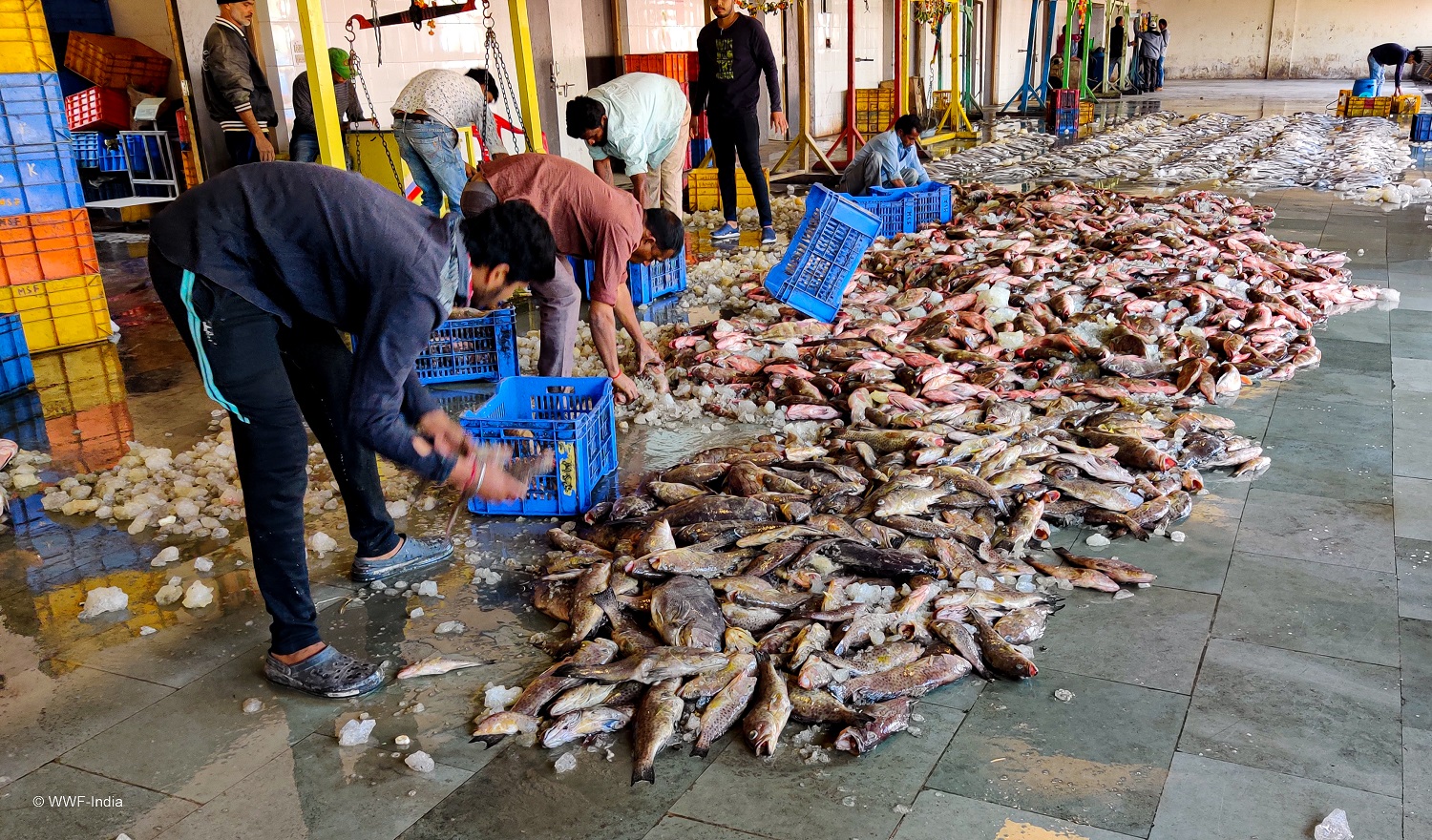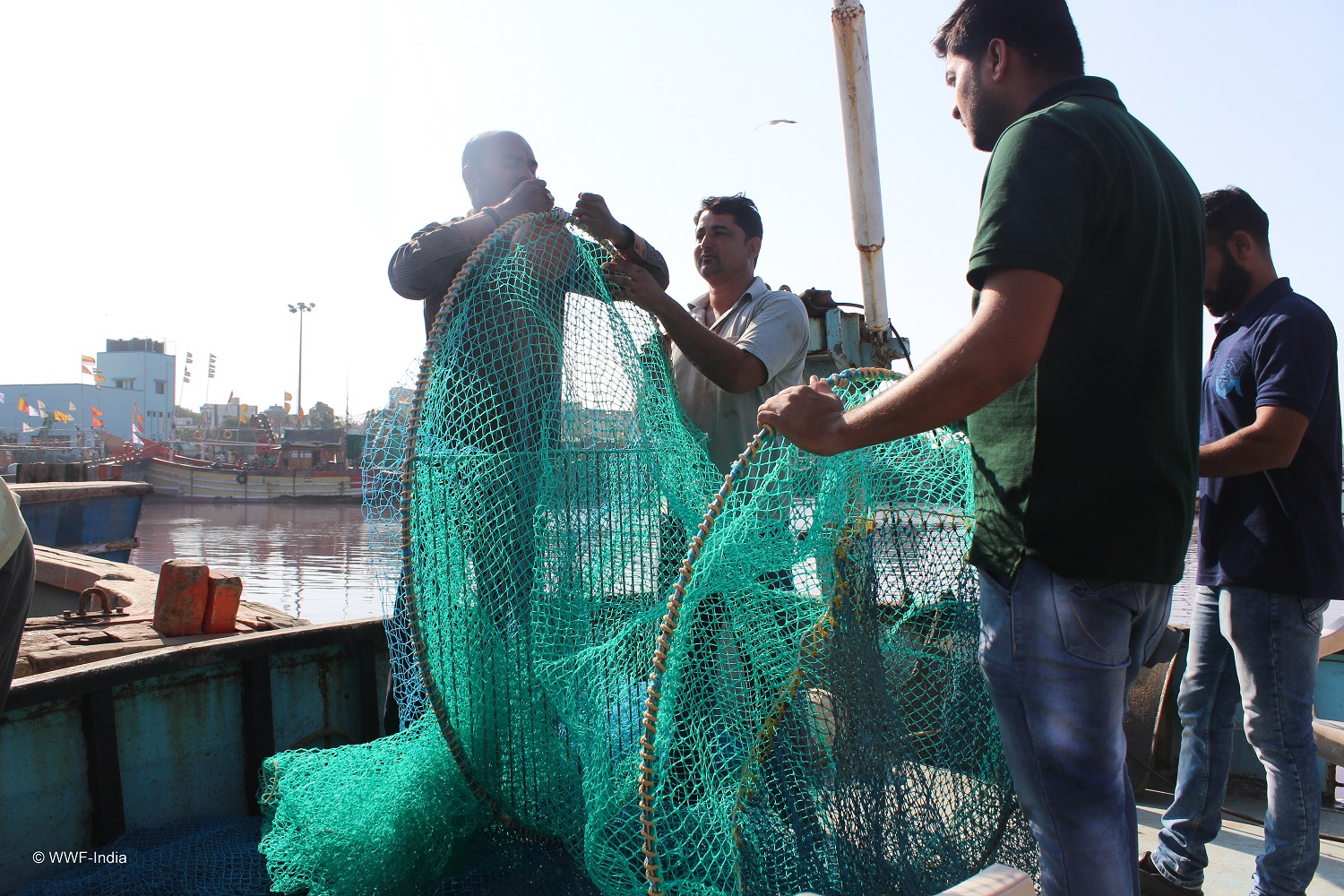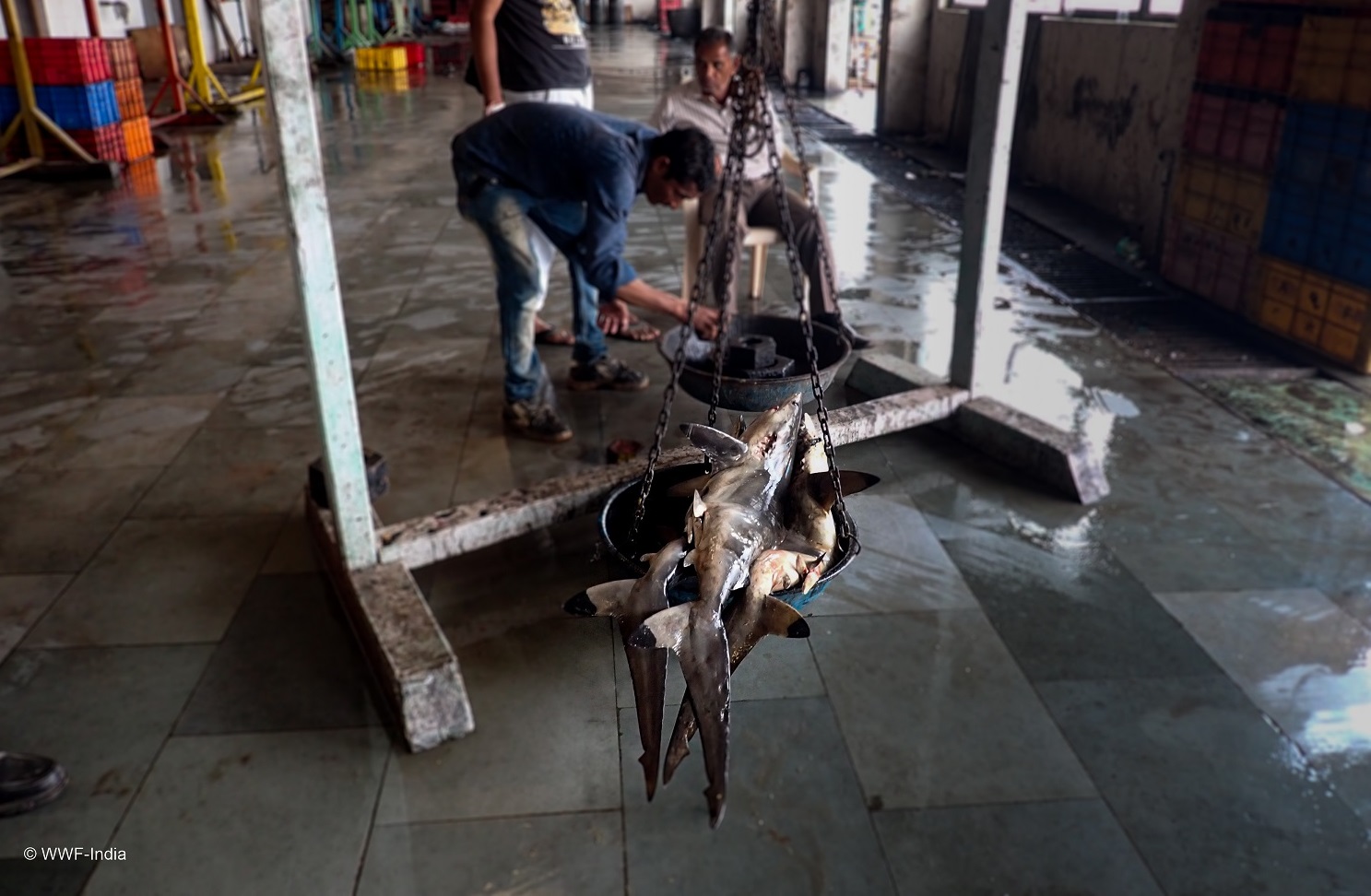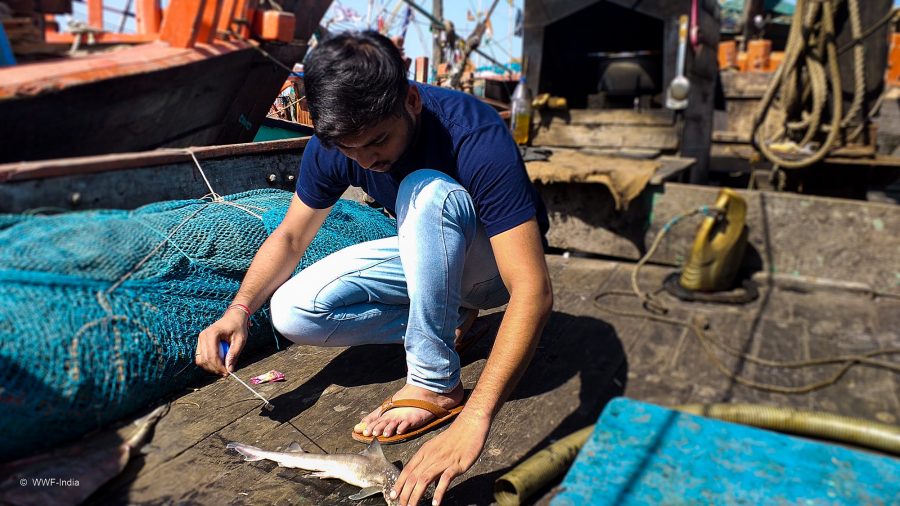08 September 2020 | Gujarat, India
What does the ocean mean to you and your community?
I am part of the Kharwa community and grew up in Porbandar, a coastal city in Gujarat, the state with the longest coastline in the country. The Kharwa people are a fishing community that arrived to Gujarat centuries ago. Ever since, fishing has been the main livelihood and the ocean has always played a central role in the lives of the people in my community – it is even considered sacred. My family and I lived near the sea and I spent a large part of my childhood playing cricket, fishing and picnicking on the beach.
What changes have you witnessed?
Many things have changed. My grandparents were small-scale fishermen who used gillnets and hooks and lines, whereas today you see many trawlers out at sea. Meanwhile, fish catches have fallen significantly. As a child, I only had to spend a few hours fishing to take home some fish for my family; fishing now takes a lot of effort. The beach has changed too: many shops and roads have been built, and much more plastic and other waste washes up on the coast. More than once we caught fish with plastic material inside them.
Many fishermen need to invest first before being able to start operating. Because of this and a decline in catches, combined with a rising demand for seafood export, many people started working in fish factories. Small-scale fishing is slowly decreasing. There are visible climate change impacts in the region, such as more frequent and unpredictable monsoons, causing circumstances that increasingly disrupt fishing activities. All this together makes it very hard to earn a living as a fisherman.



